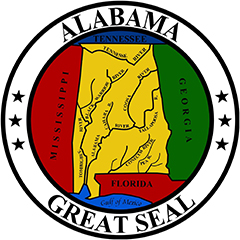CO-HOSTED BY
Alabama Department of Environmental Management

Florida Department of Environmental Protection

Mississippi Department of Environmental Quality

The CLEAN Gulf 2025 program is undergoing a complete refresh — with expanded topics, brand-new formats, and more dynamic ways to learn and connect. Full session times and details will be announced soon. Until then, the preliminary agenda below gives you a taste of what’s to come!
PRELIMINARY SESSIONS INCLUDE*:
Chair: Frank Paskewich, President, Clean Gulf Associates
Moderator: James Hanzalik, Vice-President, Clean Gulf Associates
Panelists:
Chair: Jim Elliott, Chief Operating Officer, T&T Group of Companies
Co-Chair: Michael Roldan, Senior Consultant, Hazmat Safety Consulting
Panelists:
Chair: Jim Elliott, Chief Operating Officer, T&T Group of Companies
Co-Chair: Michael Roldan, Senior Consultant, Hazmat Safety Consulting
IMT Resiliency- Building Mental Flexibility in the Incident Management Team
A Holistic Strategy for Responders’ Well-Being
Chair: Bob Patterson, Managing Director, Witt O’Brien’s, LLC / Ambipar Response
Panelists:
Chair: Dave Dolnick, Director, Crisis Management and Emergency Response, Phillips 66
Dynamic Risk Assessment and Responder Decision-Making Using Unmanned Systems at Oil Spill Incidents
Using Generative AI to Support Emergency Management in Brazil
Chair: Jared Angelle (CDR, USCG, retired), CEM, MEP, Emergency Response Team Leader, Phillips 66
BNSF Online Training Tools
Simulation Methods in Fire Response
Innovative On-Line Tools for Interactive Shoreline Response Training
Use of Micro Learning Challenges to improve Responder Performance
Chair: Chad Tameling, Executive Vice President, SET Environmental, Inc.
Guidelines for Air Monitoring Tactics for Emergency Response – An API Publication
Building a Functional Situation Unit and Leveraging Technology to Keep Pace
Thinking Outside the Box: Cost-Effective Strategies in Emergency Response – Part 1
Thinking Outside the Box: Cost-Effective Strategies in Emergency Response – Part 2
Chair: Gil Martinez, Senior Advisor, Emergency Response, Murphy Exploration & Production Co.
Regulatory Concerns of an Ongoing Response
Maintaining Equipment on an Extended Response
Maximizing Technology to Manage a Response
Chair: Michael Walker, Vice President – Gulf Region, Marine Spill Response Corporation
What’s Involved in Getting Paid for Spill Response Services
Perspective from an Insurance Adjuster: What Gets your Invoice Paid or Rejected?
Chair: Allyson Purcell MEP, CEM, CMER Director, ConocoPhillips
Operational Probabilistic Simulations Applied in Oil Drift Forecast Uncertainty Assessment for Emergency Responses
HF-Radar and AI: Supporting Marine Oil Spill Emergency Operations
Chair: Chris Tracy, Environmental Engineer, Arcwood Environmental Services
Lead Abatement on Bridges and the Importance of Waste Management Planning
Restoration and Remediation
Mitigation Scoring
Chair: Keith Nichols, Senior Project Manager/Scientist, CK Associates LLC
Operational and Environmental Aspects of Transitioning from AFFF to Fluorine Free Firefighting Foam
Regulatory Landscape of PFAS/Risks
In-field Detection of PFAS Using Portable Field Sensor during AFFF Transitions
Chair: Bradley Free, Emergency Preparedness and Response – USA Program Director, GHD
Emergency Response Tactics and Strategies for Responding to Lithium-Ion Battery Incidents
Safety Considerations of Lithium Battery Thermal Runaway Incidents: Enhancing First Responder Preparedness
After The Flames: Navigating Battery Fire Clean-Up and Recovery
Chair: Josh Clifford, Vice President, Operations and Emergency Response, QT Environmental
Surface Scent, Subsurface Spill: Evaluating the Capability of Oil Detection Canines to Identify Submerged and Sunken Oil
Oiled Wildlife Response Plans – Why You Shouldn’t Just Wing It
Applying ICS to Wildlife Emergency Management: Comparative Insights from On-Site and Remote Coordination in Brazil.
Studying the Ever-Changing Cases of Oiled Wildlife Response – Case Discussions Without Naming the Cases
Chair: Cody Fisher PE, BCEE, Manager of Special Projects, E3 Environmental
Lithium-Ion Battery Fires – Air and Environmental Monitoring Considerations
Lessons Learned from the Implementation of a 24/7 Remote Monitoring Center for Oil Spill Detection via Radar
Saltwater Intrusion and the NS Oliver Yard: a Preparedness Case Study
Chair: Vincent Velasquez, Sr. Emergency Preparedness & Response Advisor, Occidental Petroleum Corporation
Beyond the Compliance Checklist: Building Sustainable Emergency Preparedness
Thinking Like an Environmental Regulator: Roleplaying for Success
2025 EPA OPA90 Trends
Chair: Michael Hernandez, Science, Technology and Stakeholder Engagement Officer, Oil Spill Response USA Inc.
Mitigating Risks, Maximizing Preparedness: The Impact of Risk-Based Exercise Planning
PREP or not to PREP
The Simplified Planning “P”
Moderator: Sarah Hassanally, Emergency Manager, GHD
Panelists:
*Subject to change.
Alabama Department of Environmental Management

Florida Department of Environmental Protection

Mississippi Department of Environmental Quality
